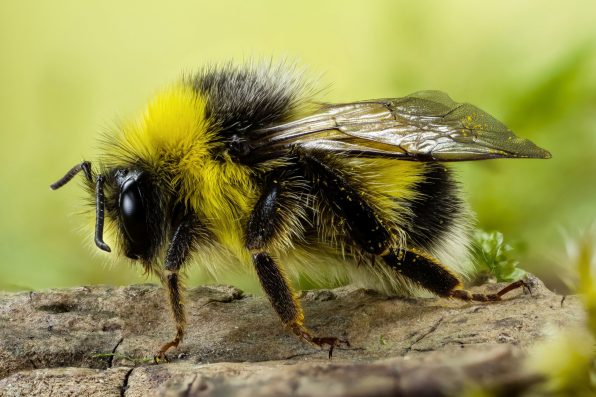For some reason, bumblebee queens prefer to hibernate in soil contaminated with pesticides over clean soil. Scientists can’t seem to figure out the motivation behind this bizarre behavioral pattern.
The new discovery is alarming and raises concerns for the bumblebee’s health and survival. Researchers from the University of Guelph in Ontario, Canada, studied queens of the common eastern bumblebee (Bombus impatiens).
“Some bee behaviors are not well understood, and we wanted to see if these bumblebee queens exhibited avoidance behavior that might reduce their risk of harm from pesticide exposure in the field,” said Dr. Nigel Raine, an environmental science researcher from the University of Guelph.
The team conducted field experiments in which the bumblebee queens were left to fly around in outdoor enclosures, mate, and select a site to hibernate in for the winter.
The options they had to choose from were clean soil or soil contaminated with one of five pesticides, including insecticides and fungicides. The researchers then sifted through the soils to look for hibernating bumblebee queens.
They realized that the queens tended to avoid the clean soil and were about twice as likely to be attracted to the pesticide-contaminated soil. Most of the bees survived, but the colony suffered the consequences of this preference.
“This raises serious concerns for bumblebee health, especially as this group of important insect pollinators already face many challenges,” said Dr. Raine.
Bumblebee queens normally hibernate underground during the winter. In the spring, they emerge to start new colonies. The researchers also investigated how bees responded to contaminants at this life stage.
In the past, studies have shown that pesticides on crops can deter or attract bees, depending on the environmental situation and the type and concentration that was used.

Sign up for Chip Chick’s newsletter and get stories like this delivered to your inbox.


